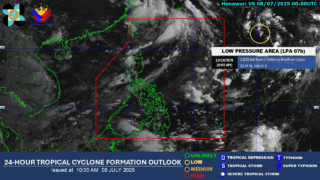Experts are pushing for a new law to allow open access to data that are crucial in responding to disasters.
Alfredo Mahar Lagmay, professor at the University of the Philippines’ National Institute of Geological Sciences, presented findings of his study, “An Open Data Law for Climate Resilience and Disaster Risk Reduction,” at a forum organized recently by independent think tank Stratbase Albert del Rosario Institute (ADRi).
Guinsaugon case
Dindo Manhit, president of Stratbase ADRi, said while strides had been made on disaster preparedness since Supertyphoon “Yolanda” (international name: Haiyan) hit the country in 2013, the study remained relevant.
“We’re one of the most vulnerable countries to the effects of climate change,” Manhit said.
Poor infrastructure, prevalent in rural areas, aggravates disasters, he said.
In his study, Lagmay cited the failure of rescuers to save more lives because of lack of data during the 2006 landslide at the village of Guinsaugon, in St. Bernard town, Southern Leyte.
“It was one of the biggest landslides in the world in the past century,” said Lagmay.
He said at least 2,000 people were involved in search and rescue efforts in just one village with the operations focused on an elementary school.
A teacher sent out a text message saying at least 400 children were still alive in the school.
The school, according to Lagmay, “actually had a GPS (global positioning system) point that could have been used to aid rescuers.”
“We knew there was available data but the GPS point was given only on the seventh day after the request and so the rescue efforts failed. More than 1,000 died,” he said.



